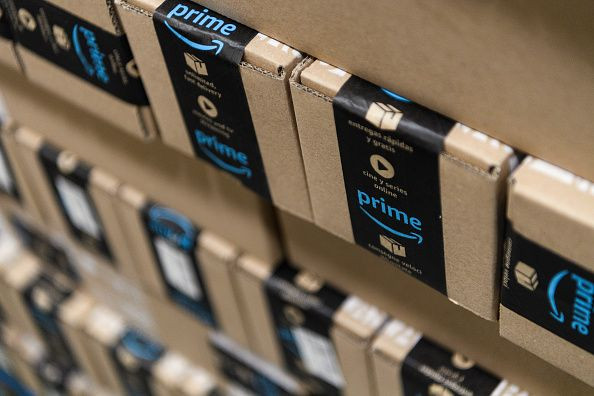Why Amazon Still Doesn't Think Prime Revenue Is Meaningful Enough To Disclose

Amazon.com (NASDAQ:AMZN) has delivered incredible gains for long-term investors over the years, while simultaneously creating endless frustration around its poor disclosures. Investor transparency is decidedly not one of the e-commerce giant's strengths, and it continuously finds new ways to obfuscate meaningful operating metrics while bragging about its business. Perhaps the most meaningful victory that investors have had in terms of disclosures was when Amazon finally started breaking out results for Amazon Web Services (AWS) in 2015.
This article originally appeared in the Motley Fool.
The SEC has been urging Amazon to improve its disclosures in recent months, and the company's been pushing back.
Amazon doesn't even track Prime-related sales
The Wall Street Journal (subscription required) notes that Amazon is one of several companies that are resisting SEC efforts to improve investor transparency, which are in part to comply with new revenue recognition standards that companies have been adopting all year. The WSJ report points to exchanges that occurred in August that are worth revisiting, since Amazon tries to justify why it doesn't disclose certain metrics to investors. The SEC's initial correspondence can be found here, with Amazon's response here.
The company still doesn't think that how much revenue Prime members generate is meaningful, despite the fact that Prime is one of the most successful subscription-based shopping programs ever created. For example, the SEC notes that Amazon finally disclosed roughly how many Prime members it had earlier this year when CEO Jeff Bezos said in Amazon's annual shareholder letter that the company had "exceeded 100 million paid Prime members globally." That was a momentous milestone, and regulators rightly believe investors would be interested to know how much revenue is attributable to Prime members compared to non-Prime members.
Amazon responded, "We respectfully do not believe that net sales attributable to Prime members versus sales to non-Prime members is meaningful or useful information." The company justifies this response by saying the same product sale can be accounted for in various ways, depending on if Amazon sells the product or if a third-party seller makes the sale. Other factors could also contribute to fluctuations in Prime-related revenue that Amazon doesn't want investors to overthink. Prime provides numerous benefits to members, some of which don't directly translate into recordable revenue but still strengthen customer loyalty. Members can also move in and out of Prime freely, making tracking Prime-related purchases difficult.
"For the foregoing reasons, management does not track the percentage of net sales that are attributable to Prime members and, therefore, Prime membership status is not tied into our financial reporting systems," Amazon wrote. "As we further develop our omnichannel distribution system, it may become more difficult to associate net sales with a Prime membership."
Investors still want that data
Amazon has some valid points, but investors are still keenly interested in how much Prime members spend compared to non-Prime members. That information can be useful in deriving the lifetime value of a Prime member. Market researcher Consumer Intelligence Research Partners (CIRP) regularly puts out estimates.
The most recent CIRP estimates from October show that Prime members tend to spend approximately $1,400 per year, compared to $600 per year for non-Prime members. CIRP also believes that Prime membership has peaked in the U.S. market at around 97 million, which suggests that growth in the U.S. e-commerce segment may rely more heavily on more spending per member going forward.
Amazon could introduce a metric that compares sales growth among users that have been Prime members for at least 12 months, similar to how physical retailers report same-store sales based on locations, for example. There are all sorts of ways that Amazon could improve investor transparency if it built the internal reporting systems. Too bad the tech titan is clearly uninterested in doing so, and the SEC seems to be satisfied with the company's response.
John Mackey, CEO of Whole Foods Market, an Amazon subsidiary, is a member of The Motley Fool's board of directors. Evan Niu, CFA owns shares of Amazon. The Motley Fool owns shares of and recommends Amazon. The Motley Fool has a disclosure policy.




















